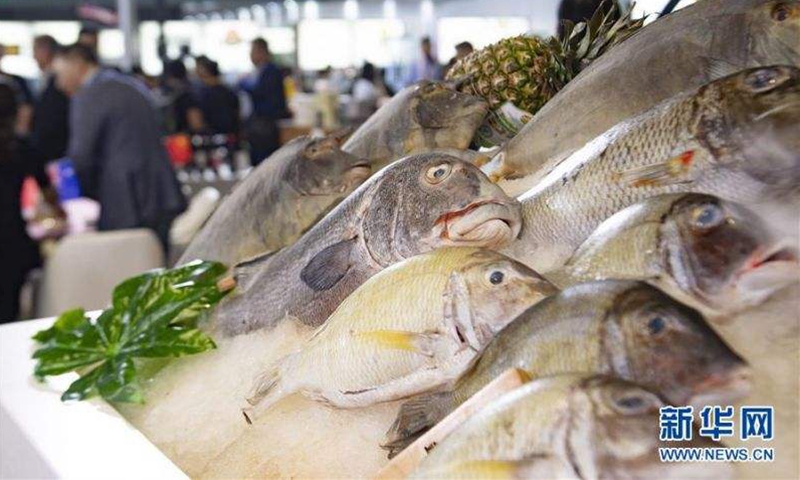Imported virus via cold chain to continue if pandemic persists abroad

Frozen fish Photo: Xinhua
Public concerns have risen after three Chinese cities with the same root cause of imported COVID-19 infections through cold-chain logistics were reported, with hundreds of people having been tested. North China's Tianjin Municipality, in which confirmed a patient, has entered "war time mode" on Sunday.
Tianjin has entered "war time mode" after a new COVID-19 patient was confirmed on Sunday. The patient is a worker in a local frozen food company who had contact with the outer packaging of imported frozen food, which was found to be contaminated with coronavirus, government officials said at a press briefing on Sunday afternoon..
The Tianjin health authority said regions that received any contaminated goods from Tianjin have been notified.
On Saturday, health authorities in Taiyuan, North China's Shanxi Province and Dezhou, East China's Shandong Province announced that imported frozen food packaging had tested positive for COVID-19 and the goods had been transferred from Tianjin after entering China.
All the close contacts of those who handled the imported goods, and also their close contacts, were under quarantine in Taiyuan and Dezhou, and they have tested negative for COVID-19 so far. The goods and work environments have been disinfected, reports said.
China has detected novel coronavirus on the packaging of frozen food and a number of related cases of industry workers who did not have effective protection in the past few weeks. Similar cases have been reported in East China's Qingdao and Yantai, South China's Shenzhen, and Northeast China's Dalian.
"The chances of virus importation have increased and may even result in localized clusters of infections without strict prevention procedures, and the risk will persist if the epidemic keeps worsening abroad," Wang Guangfa, a respiratory expert at Peking University First Hospital, told the Global Times.
Wang added that the general public need not be too anxious about contracting the virus through imported cold-chain food. "The chance of getting infected while eating is rather slim. As long as the food is cooked, no one will be infected through it," said Wang. "But we should be careful when handling raw meat."
Guidelines on COVID-19 prevention in the production and operation of cold-chain food issued by the National Health Commission confirmed that live coronavirus can be imported via long-distance transportation and infect cold-chain workers, and the guidelines suggested extra personal hygiene requirements for loading and unloading workers.
In addition to extra protection for relevant industry personnel and strict sampling procedures for imported cold-chain food by customs, Wang also suggested that relevant laws and regulations could be introduced to reduce the risks associated with imported food.
"For example, a meltdown mechanism can be set up, so that if a sample imported from a certain country tests positive, the cold-chain importation from that country can be suspended for a period of time," Wang said.
In September, China suspended imports from 56 cold-chain food companies in 19 countries and regions where workers had been infected with COVID-19.